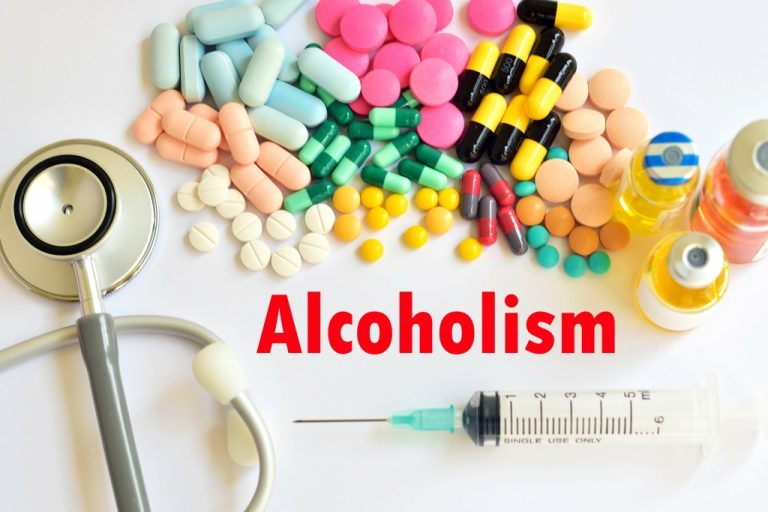Although evidence is still limited, omega-3 fatty acids show promise as an excellent alcohol recovery supplement. Many people who struggle with their drinking don’t have enough L-glutamine in their systems. Adding this nutrient can help boost mood in recovery and reduce withdrawal symptoms, making it one of the best supplements for alcohol cravings. If you’re in recovery from alcohol use disorder, adding this supplement into your diet can help with anxiety, depression, chronic pain, and many other issues that might trigger alcohol cravings. DL-phenylalanine can also be a useful supplement for alcohol withdrawal.
- Inpatient facilities may also have amenities, medications, and therapy options.
- The major categories of vitamins affected by alcohol are the B vitamins and vitamins A, C, D, E and K.
- When detoxing, the body will deplete its reserves for several nutrients and need extra nutritional support.
- D-phenylalanine also slows the breakdown of endorphins, which act as the body’s natural painkiller, prolonging their release into the body.
- In a related article, I share why these are the best vitamins and minerals for alcohol detox as well as some signs of deficiency.
There were also associations between both vitamin C and vitamin B9 [117,118] while the molecular basis is unknown. Vitamin B9 is required for the transformation of Hcy into methionine as well as the generation of deoxythymidine monophosphate (dTMP) from deoxyuridine monophosphate (dUMP) [119]. Even though vitamin C consumption has been shown to raise circulation levels of vitamin B9 and lower Hcy levels [118,120,121], the relationship between them remains unknown.
Best Vitamin And Mineral Supplements For Alcohol Detox
Dihydromyricetin is commonly used by those experiencing effects of alcohol withdrawal. Many people use this vitamin supplement to help with the effects of a hangover. It also reduces the amount of time it takes to recover from drinking and also improves your quality of sleep. The recommended dosage of Vitamin B for those going through alcohol treatment vitamins for recovering alcoholics is 250 mg to 300 mg as this will help the cravings and the withdrawal effects. Unfortunately, many studies published in the The Journal of Neuroscience suggest that Vitamin B deficiencies result in damage to the brain and liver. Treating vitamin deficiencies caused by alcohol use disorder in early recovery can support both physical and mental health.
Zinc – Consumer – NIH Office of Dietary Supplements
Zinc – Consumer.
Posted: Tue, 04 Oct 2022 07:00:00 GMT [source]
Vitamin C is another important vitamin for recovering alcoholics. Alcohol can cause malnutrition, malabsorption, and increased urinary excretion of the vitamin, leading to vitamin C deficiency.9 This deficiency can cause you to feel tired, irritable, and weak. Severe deficiency, called scurvy, may result in anemia, bruising, and dental issues.
Magnesium For Alcohol Detox
The way to lose weight, then, is not in cutting calories but in cutting glucose intake. Beer scores very high on the glucose index, wine and spirits score zero. Tests have shown that when alcohol is substituted for carbohydrates, calorie for calorie, subjects are apt to lose weight.

They can also help with cravings, and they can lessen withdrawal symptoms. Use of this site constitutes acceptance of Sober Recovery’s « Terms of Use »,
« Privacy Policy »,
« Cookie Policy », and
« Health Disclaimer ». The material on this site is for informational purposes only, and is not a substitute for medical advice, diagnosis or treatment provided by a qualified https://ecosoberhouse.com/ health care provider. In fact, it is estimated that an alcohol abuser typically gets 50 percent or more of total daily calories from alcohol. Any food calories are typically consumed in the form of junk foods. Unfortunately, the calories gained from alcohol and junk food are “empty calories.” That is, they are calories lacking nutrients and are of little value to the body.
What is the best multivitamin for alcoholics?
Dihydromyricetin (DHM) is an over-the-counter herbal remedy well-known for soothing hangovers. Research shows that DHM can increase the efficacy of enzymes that metabolize alcohol, helping your body to eliminate it faster. DHM also appears to reduce inflammation and fat accumulation in the liver, helping to guard against alcohol-related liver disease. The majority of people who try to quit drinking by themselves will fall back into old habits. There are many resources that offer help, and it’s crucial to find one that suits your needs. If your goal is to begin an empowering, holistic adventure to start living your best life beyond alcohol, check out Total Alcohol Recovery 2.0.
- Deciding to cut back on your alcohol intake can be a long and difficult road, so we’ve found the best vitamins for recovering alcoholics to help you control your alcohol use or go sober.
- “When someone is riding a blood sugar low, it can be easy to mistake a craving for something sweet as an alcohol craving,” Blackburn-Borg said.
- Alcohol detox is, for many, the first step on the road to recovery.
- When blood sugar crashes like that, your brain signals you to look for a way to raise it and boost energy levels.
- Vitamins and their possible mechanisms of action against the liver injury caused by al-cohol consumption.
As a result, many individuals who misuse alcohol may become malnourished. Long-term alcohol use can cause vitamin A levels to fall in the liver, the primary organ that breaks down alcohol and stores vitamin A. This occurs as both substances use similar pathways in the body to metabolize them. If someone regularly drinks more than the recommended amounts of alcohol — one drink daily for women and no more than two drinks daily for men — they may experience negative health consequences. For example, their body may become dependent on the alcohol, and their brain chemistry may change. You may be tempted to indulge in junk food while you’re recovering from addiction.
Signs and symptoms of AWS
The upper limit for daily vitamin C is 2,000 mg, however, medically supervised dose increase is advised before taking vitamin C exceeding the daily recommendation of 90 mg. Vitamin A, or beta-carotene supplements help to correct deficiencies during withdrawal, but due to potential liver damage from alcoholism, should only be taken under physician supervision. Even if you do your best to eat healthily, heavy alcohol consumption will deprive your body of essential nutrients and leave you feeling drained when you try to detox. Therefore, we recommend taking dietary supplements if you drink large quantities of alcohol, especially if you have an Alcohol Use Disorder or are trying to detox after a spell of heavy drinking. Vitamin supplements for alcoholism are useful for every step of the recovery process. Many studies found in medical journals discuss the benefits of herbs, minerals, and vitamins.
- Zinc deficiency also has been linked to depression, irritability, confusion, and apathy, which are often challenges for people with an alcohol addiction.
- Too much vitamin A in an alcoholic’s body can cause fibrosis in the liver (a buildup of scar tissue).
- How the body processes and uses the calories derived from alcohol is more complex than the usual calorie-count-per-food-item charts.
- As you can see, vitamins and minerals are your friends as you recover from your addiction.
- When compared to those who do not consume alcohol, urine ascorbic acid excretion increased by 47% after acute alcohol consumption of up to 0.58 g ethanol/kg body weight [61].
- Nutrition serves two purposes—it provides energy in the form of calories and it maintains proper body structure and function.
- Consider getting a CBC blood test to find out the nutrient deficiencies in your body.

